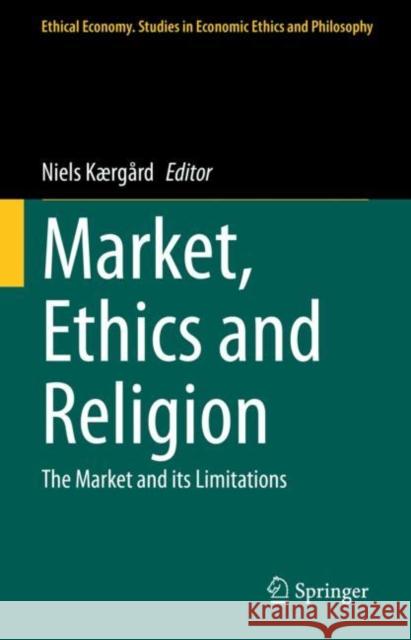Market, Ethics and Religion: The Market and its Limitations » książka
Market, Ethics and Religion: The Market and its Limitations
ISBN-13: 9783031084614 / Angielski / Twarda / 2023 / 303 str.
Market, Ethics and Religion: The Market and its Limitations
ISBN-13: 9783031084614 / Angielski / Twarda / 2023 / 303 str.
(netto: 651,74 VAT: 5%)
Najniższa cena z 30 dni: 616,85
ok. 16-18 dni roboczych.
Darmowa dostawa!
This book deals with the basic question of what money can and cannot buy and offers an analysis of the limitations of the market mechanism. Few concepts are as controversial as religion and the market mechanism. Some consider religion to be in conflict with a modern rational scientific view of life, and thus as a contributory cause of harsh conflicts and a barrier to human happiness. Others consider religious beliefs as the foundation for ethics and decent behaviour. Similar, a number of neoliberal writers acclaimed the market mechanism as one of the greatest triumphs of the human mind, and saw it as the main reason why rich countries became rich. Others are extremely skeptical and stress how this mechanism has result in big multinational firms with powerfully rich owners and masses of poor low-paid workers. Researchers from various fields - economists, social scientists, theologians and philosophers - handle these questions very differently, applying different methods and different ideals. This book offers a synthesis of the different viewpoints. It deals with economists’, theologians’ and philosophers’ differing thoughts about the market and its limitations.
This book deals with the basic question of what money can and cannot buy and offers an analysis of the limitations of the market mechanism. Few concepts are as controversial as religion and the market mechanism. Some consider religion to be in conflict with a modern rational scientific view of life, and thus as a contributory cause of harsh conflicts and a barrier to human happiness. Others consider religious beliefs as the foundation for ethics and decent behaviour. Similar, a number of neoliberal writers acclaimed the market mechanism as one of the greatest triumphs of the human mind, and saw it as the main reason why rich countries became rich. Others are extremely skeptical and stress how this mechanism has result in big multinational firms with powerfully rich owners and masses of poor low-paid workers. Researchers from various fields - economists, social scientists, theologians and philosophers - handle these questions very differently, applying different methods and different ideals. This book offers a synthesis of the different viewpoints. It deals with economists’, theologians’ and philosophers’ differing thoughts about the market and its limitations.











